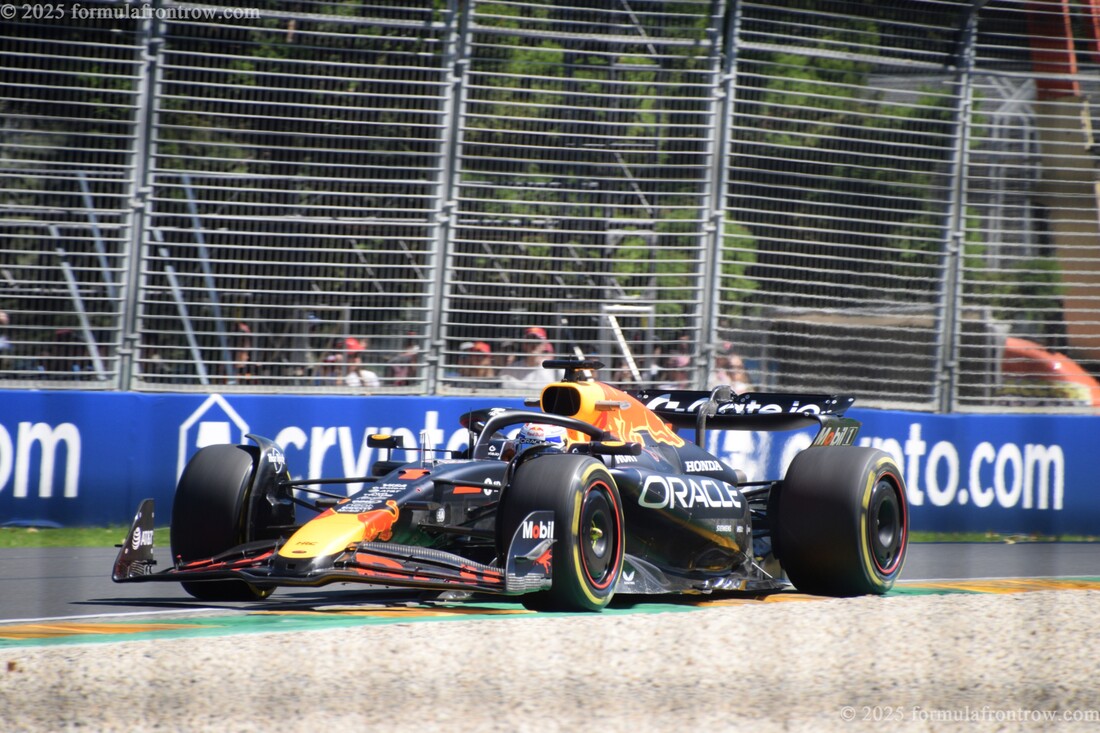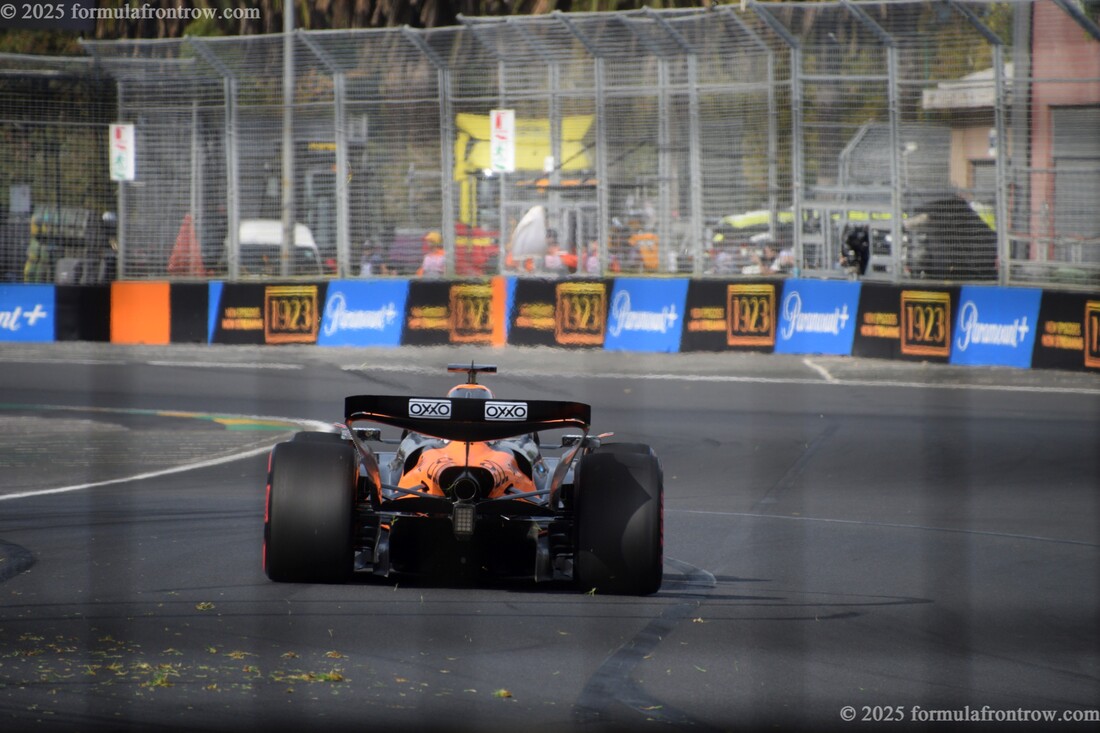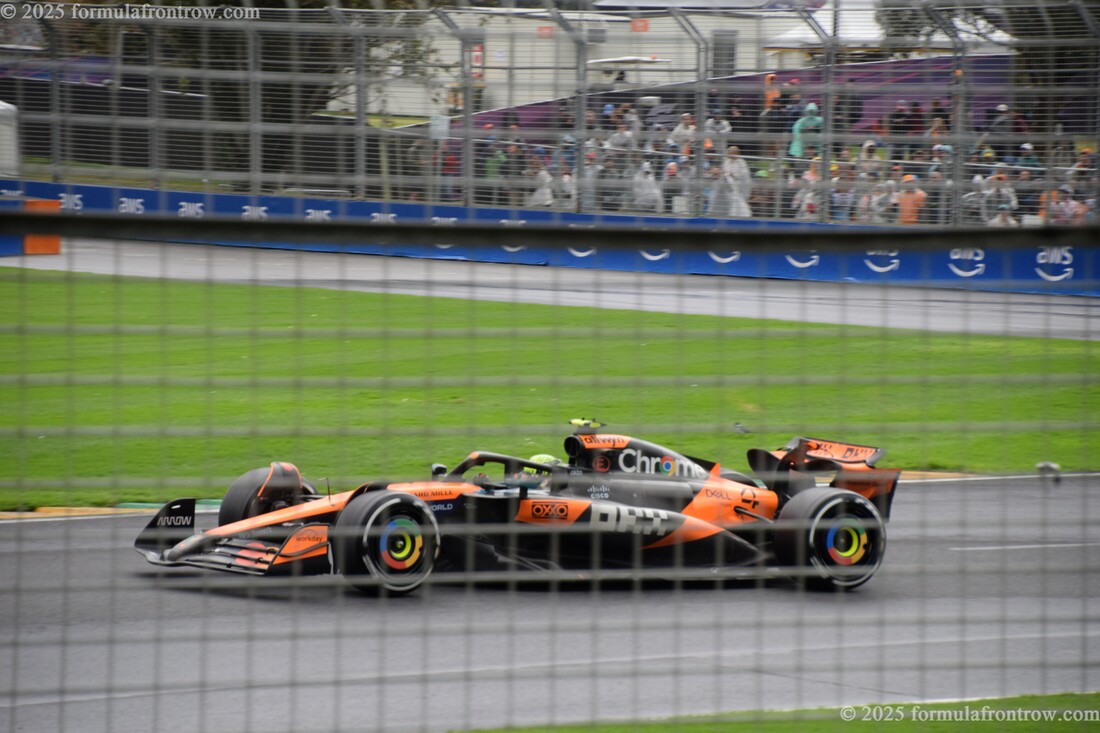 Josh Buchan, TCR Australia Series, Bathurst International. Josh Buchan, TCR Australia Series, Bathurst International. As the motorsport season winds up for 2023 and we head into the Advent calendar approaching Christmas, we feel it's appropriate to acknowledge and celebrate some of the various winners of categories we follow and post photographs of on this website. Supercars crowned a new champion in Brodie Kostecki. Once a maiden win was acquired early in the season, he was the leading frontrunner throughout the entire campaign, winning a deserved title for the popular Erebus team. A future heavy hitter for seasons to come in Australia's premier category. Congratulations to Aaron Cameron for winning his inaugural Gold Star in S5000. The top prize in Australian motorsport for open wheel categories. A versatile racer who also competes in TCR Australia Series. Persistence exemplified in James Moffatt. A distinguished lengthy career in numerous categories has finally netted him his first national championship. This was achieved competing in National Trans Am. Kudos to Josh Buchan in wrapping up the TCR Australia Series title for HMO Customer Racing at the Bathurst International. Proving that's it's never over until the final chequered flag, he came from behind to defeat the unfortunate Bailey Sweeny and hold off a late offensive from defending champ Tony D'Alberto. We did however find it intriguing that the international drivers of the TCR World Tour heavily populated the podium at both Sydney Motorsport Park and Mt Panorama. We love it when the internationals come Down Under to bolster the racing ranks. Finally, are we witnessing something very special in Formula One? Red Bull won 21 out of 22 races securing both the constructor's crown and a 1-2 in the driver's title. Max Verstappen won an unprecedented 19 races to become a triple world champion. He has joined such illustrious names like Fangio, Brabham, Stewart, Lauda, Piquet, Prost, Senna, Schumacher, Vettel and Hamilton. Scary thing is, Verstappen is still only 26. Could we be watching F1 history in the making? To those that suggest that the current level of dominance demonstrated renders F1 a little lacklustre, we could be looking back in years to come asking, "Remember when....?"
0 Comments
 Haas, F1, AGP. Haas, F1, AGP. Formula One teams are in the business of racing. F1 drivers get paid to race. With the advent of the Sprint in 2021, we now enjoy more racing than ever over the course of a Grand Prix weekend. The Sprint is a third of the distance of the GP (100kms) and is contested on a Saturday. 2023 saw 6 events incorporate the Sprint. The majority of drivers are largely in favour. The teams seem to relish it as they only get one practise session and then straight into qualifying for Sunday's Grand Prix, therefore rewarding the teams that are better prepared and able to react on the fly and exposing the lesser. The cream always rises to the top. But can the weekend format be improved upon? Delving into some research and mulling over our own deliberations, we also probed a few of our colleagues. The popular opinion is that 6 events with the Sprint is about the right number. Contrarily, there's conjecture as to whether there's enough build up to the Grand Prix itself? Has the value of a GP been diminished? Currently points are awarded in the Sprint down to 8th place and count for the Driver's and Constructor's Championships. Couldn't GP victory prestige be restored by simply awarding points in the Sprint only for the Constructor's Championship? The drivers would be reminded of who their employers are, and that F1 is a team sport. They would still race as hard as they are professional and the best in the world. Plus when the visor comes down.... The other point that warrants debate is by the time the GP comes around on Sunday, can anyone remember from Friday who qualified where? Would a reshuffle of proceedings be more beneficial to intensify the build up to the GP? By that we mean moving qualifying for the Sprint, the Sprint Shootout, to Friday afternoon, the Sprint to Saturday lunch time, and keeping GP qualifying in its traditional Saturday afternoon allocation, with the GP of course on Sunday. This fully separates the Sprint from the GP. There's no doubt the current elimination style down to a top 10 final qualifying format is largely successful, but is the Sprint Shootout adopting the same format just too much of a good thing? We're not ashamed to say that we were fans of the old I hour free for all qualifying of a few years back. Remember when the top combatants would outdo each other by laying down benchmarks as track conditions improved, only for Messrs Senna or Schumacher to come out and blow them all away? To differentiate the Sprint from the GP, the Sprint Shootout could adopt such a qualifying format. To avoid a lack of running in the first 20 minutes like yesteryear, F1 can simply mandate that all teams have to attempt a minimum of one run every 15 minutes. One thing's for sure. The Sprint is here to stay. At least for the short to medium term but with definite room for improvement. Now if only we can get drivers pushing all the time instead of managing tyres....  Max Verstappen, Red Bull, Australian GP. Max Verstappen, Red Bull, Australian GP. A precedent has been established in Formula One in 2023. Many will remember and still reminisce McLaren's dominating season in 1988 when Ayrton Senna and Alain Prost won the first 11 GP's on their way to winning 15 out of the total 16 races. Fast forward to 2023 going in to the mid season summer break, and Red Bull have claimed all the victory plaudits. All 12 GP's and the Sprints as well, leaving barely a crumb for their rivals, thus demoralising them in the process. Ten wins for reigning world champ Max Verstappen and two for team mate Sergio Perez. Red Bull acquired the ailing Jaguar team in late 2004 and joined the grid in 2005. Once they enjoyed their first win in 2009, you could say that the floodgates have opened as Red Bull have become the fastest team ever to garner 100 victories in F1. Which got us contemplating the secrets of their success. Sure, they're funded largely by an energy drink world renown mega company taking the duress out of acquiring a budget. Sure, they have "the standard" in factory facilities. Sure, they now produce their own power unit in collaboration with Honda and soon with Ford. Sure, they have in their employ arguably the best designer in the business in Adrian Newey overseeing their design team. But has enough credit been afforded to team principal Christian Horner? Christian Horner was a competent racer who progressed to the then F1 feeder category, Formula 3000. Realising he'd reached his potential, moved into team management with his F3000 team, Arden. Wanting to move into F1, he looked into purchasing Jordan. When negotiations broke down, he was poached in late 2004 by the new Red Bull team to fulfil the role of team principal. He became the youngest ever F1 team principal at age 32, and quickly secured the expertise of the aforementioned Adrian Newey. They're both still there to this day. When Ferrari were dominating the championship 20 years ago with Michael Schumacher winning five driver's and the team six constructor's championships in a row, they had a wonderful team which included Ross Brawn, Rory Byrne and Paolo Martinelli. But it was team principal Jean Todt that deserves a massive amount of credit. Ferrari are an institution in Italy and the Italian media are relentless when Ferrari are underperforming. Jean Todt provided a buffer between the demanding media and the race team, allowing them to focus solely on racing. This is exactly what Christian Horner does at Red Bull. Whenever controversy ensues or conjecture surfaces, it's Christian Horner that fronts the media and deals with the tough interrogation. When rival teams raise allegations of car legality, it's Horner that goes into bat for Red Bull against them or with the governing body. You might say it's his job, but Horner often adopts the ethos of the best form of defense is attack, and happily shoulders the criticism. The race team can simply do what they're paid to do, race. When other teams are looking for band aid fixes by routinely changing personnel including team principals and upper management in a vain attempt to move to the front of the grid, Christian Horner has been at the helm of Red Bull since their inception. It's no wonder he's now the longest serving current team principal on the grid. Are we now entering another period of Red Bull dominance in F1? What price do you put on stability?  Fernando Alonso, Aston Martin, F1, AGP. Fernando Alonso, Aston Martin, F1, AGP. There are those that would profess that Aston Martin's Fernando Alonso's immense talent is deserving of ascending Formula One's zenith by amassing numerous championships. There are those that would suggest that by already being a double champion that this has already been achieved. Or others would conclude that Alonso has simply been at the right team at the wrong time. After debuting with backmarkers Minardi in 2001, Alonso became the then youngest F1 race winner in 2003 and the then youngest championship winner in 2005 and 2006 with Renault, thus halting Ferrari's phenomenal run and dethroning the great Michael Schumacher in the process. All started well right? A move to still front running McLaren for 2007 seemed an informed decision. However, the debut of Lewis Hamilton saw a contentious season unfold. Alonso felt team support was skewered towards the rookie despite famously stating that it was he who put 2 seconds on the car. It all came to a head during the Hungarian GP as the two sabotaged each other's qualifying. Technical espionage was also exposed costing McLaren their championship points and $100m. This all resulted in Alonso leaving McLaren by mutual consent one year into a 3 year deal. He then returned to Renault for '08 and '09 only to skulk around the midfield. Next the lure of Ferrari proved too much and he answered the call of Maranello. Ferrari wanted Alonso to the extent of paying out the last year of 2007 champ Kimi Raikkonen's contract to make a race seat available. For reasons only Ferrari and Alonso know, they fell short of the ultimate plaudits. 5 years netted three 2nd places in the championship for Alonso during Red Bull's first period of dominance. Further championship success still eluded. There's a operational perspective that to succeed in modern F1, a team needs exclusivity when it comes to powertrain supply. Plausible concept wouldn't you think? McLaren subscribe to this ethos and managed to entice Honda back as their exclusive powertrain supplier. This subsequentially lured Alonso back in 2015. Honda have always entered F1 and left F1 when it suits and they always taste success, but they traditionally take time. Alonso's second stint at McLaren was blighted by an underpowered, unreliable Honda which culminated in Alonso frustratingly badging it a "GP2 engine" over the radio at Honda's home track during the Japanese GP. If you want evidence of Honda's success post McLaren, you only have to see what they've now achieved with Red Bull. Regarding Fernando, time for a sabbatical. The Indy 500 beckoned. A championship and two Le Mans 24 Hour victories with Toyota in the World Endurance Championship, and even a crack at the Dakar rally. A return to F1 in 2021 for his third tenure with the Renault group now under the guise of their Alpine brand only saw Alonso collect one podium in his two year stint. Which finally leads us to 2023. Fernando Alonso is an Aston Martin F1 driver. Canadian billionaire businessman Lawrence Stroll acquired the old Jordan, then Midland, then Spyker, then Force India, then Racing Point team and rebadged it as Aston Martin F1. Mr Stroll recognised the team's heritage and potential and has invested astutely and reinvigorated the team. They've just moved into their new factory which was completely paid for before the implementation of the cost cap. It is now the benchmark standard with everything in house, including their own windtunnel and simulator. They've recruited wisely including hugely experienced Mike Krack as Team Principal and the widely regarded former Red Bull chief aerodynamicist Dan Fallows as Technical Director. Are all the ingredients now in place for Fernando Alonso and Aston Martin to succeed? 8 races into the 2023 season and positive results already seem to be coming to fruition. Alonso has tasted podium champagne on six occasions, eclipsing the 100 podium milestone. He's not won since he was at Ferrari way back in 2013 however. Will he add to his 32 victories with Aston Martin? Can Aston Martin end Red Bull's second dominant run in F1? Has Fernando Alonso finally found himself in the right place at the right time?  Max Verstappen, Red Bull, AGP. Max Verstappen, Red Bull, AGP. A friend asked us, "How was the Grand Prix?" The only answer we had was "Totally crazy." An enthralling, captivating, unpredictable and thoroughly entertaining Grand Prix was served up to race fans at Melbourne's Albert Park. Formula One racing sometimes receives criticism for lacklustre races, but every so often dishes up something special and this time it was the Australian Grand Prix's turn. Reigning world champion Max Verstappen and Red Bull won an engaging GP and in our opinion was deserving as he was the dominant force for the majority of the weekend. Red Bull also ended their Albert Park drought as they have only won once before way back in 2011. The Australian GP was not without its conjecture though. No F1 race since its 1950 inception has seen 3 red flag stoppages, so the 2023 iteration will certainly not be forgotten quickly. We've read and heard a lot of punters saying that the red flags were not necessary, as first the early Alex Albon Williams crash, then the Kevin Magnussen Haas crash which was then the catalyst for the 2 lap shootout at the end which resulted in another crash at the restart bringing out the final red flag on the penultimate lap, could have been dealt with, with a Safety Car or Virtual Safety Car. Certain team principals have since come out saying that we need clarification as to what incident constitutes a VSC, a SC or a red flag. Please tell us how this can be defined? All incidents and crashes result in debris on track. Do we say that if there's one piece of carbon fibre too many strewn across the track that that is the difference between a SC or a red flag stoppage? Remember it was the governing body, the teams and drivers themselves that were all in agreeance to race as much as possible and finish GP's under green flag conditions. Clearing up incidents, debris or even barrier damage takes much longer under VSC or SC conditions. Isn't it better to allow marshals and recovery crews to work more safely and quickly without losing racing laps by imposing a red flag stoppage? Can you imagine the controversy if your favourite team or driver suffers a last lap tyre puncture from debris while leading the race behind the SC? Opinions also differ regarding how restart grids are formed after a red flag. If race order can not be distinctly established, then the grid is set from the previous lap. In the case of the Australian GP for the final SC lap to end the GP, the cars had not passed the first sector marker on the penultimate lap after the crash before the red flag was called, and with GPS unreliable at best, there is no alternative but to go back a lap to when they crossed the start line. Finally, there's the question of penalties imposed on drivers and teams during a race. Was the 5 second penalty imposed on Ferrari's Carlos Sainz for causing the final restart crash warranted? The penalty pushed Sainz from 4th to last and out of the points at the chequered flag. Should it have been dealt with post race, thus allowing Sainz and Ferrari to plead their case? A 5 second penalty imposed by the stewards is actually one of the more lenient penalties available to them for such an incident. Would there have been as much rancour if it didn't happen with 2 laps to go? Would there have even been that final red flag if the Alpine of Pierre Gasly hadn't collided with his team mate Esteban Ocon when he rejoined the track after avoiding the Sainz and Alonso incident? Could the stewards have imposed a penalty on Gasly for an unsafe return to the circuit? Without the two Alpines crashing, we dare say the race would have finished under green flag. The big winner out of all this was that Aston Martin's Fernando Alonso, who was able to retake his place at P3 for the final lap and collect his well deserved trophy on the podium. Debate still rages. Makes for an interesting episode of Drive To Survive don't you think? |
Categories
All
Archives
September 2025
|









